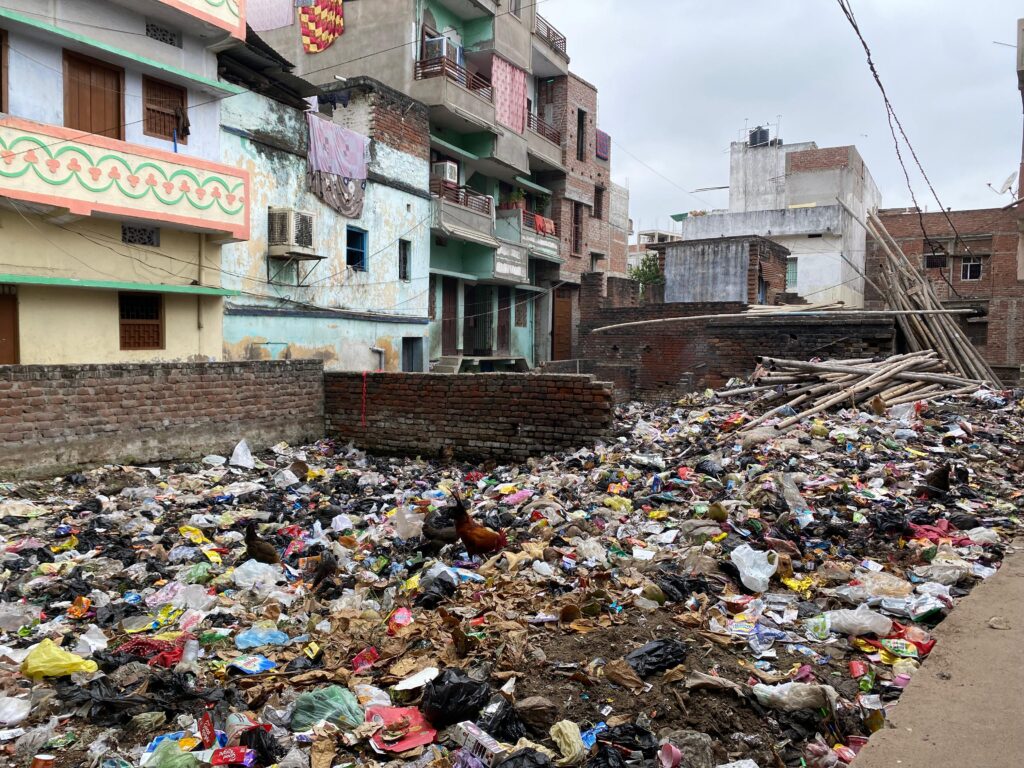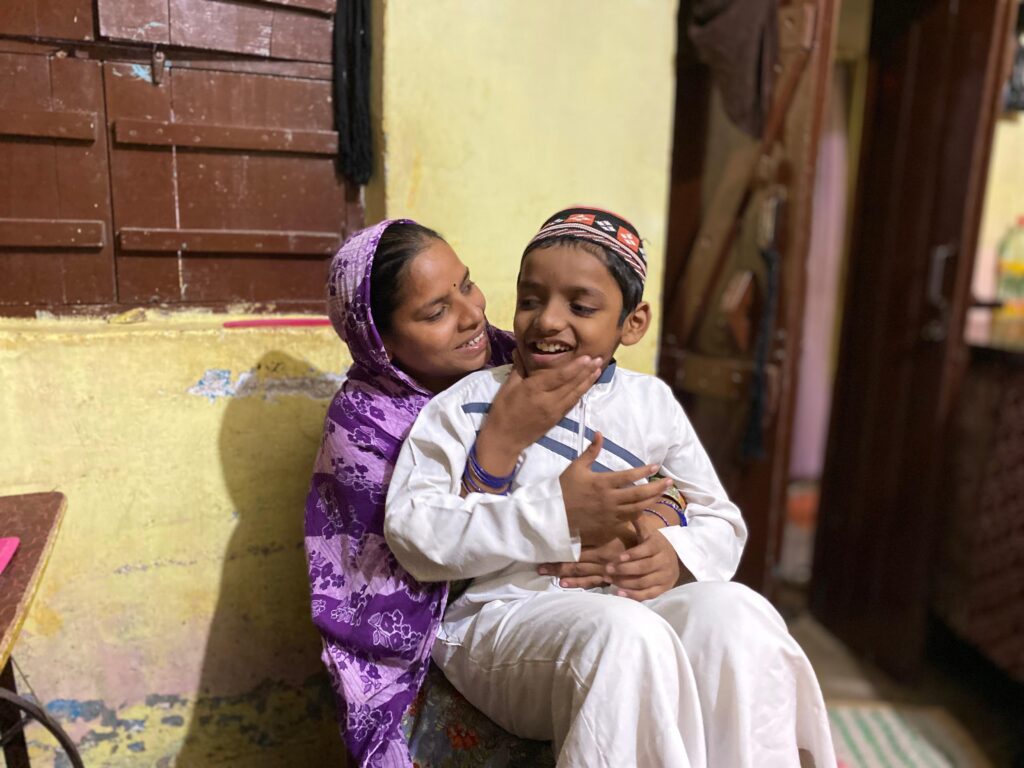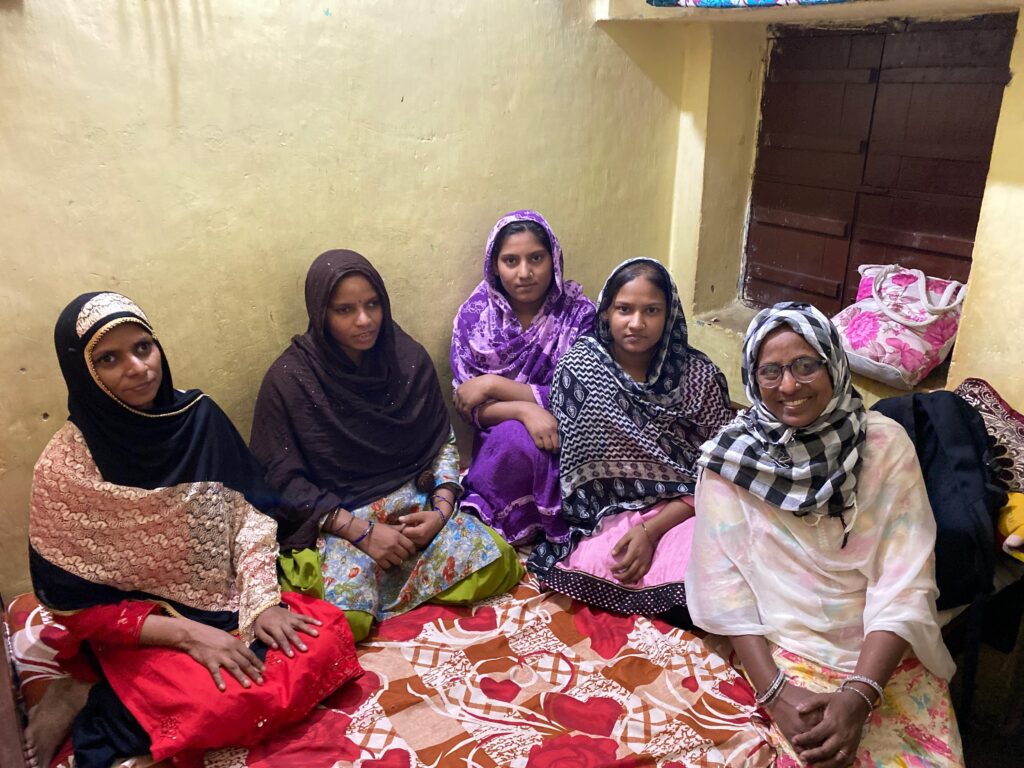I’ve been wondering what it truly means to have hope these days. Is it enough to simply carry on with life? Is it futile? Is it an emotion that gets passed from one person to another? Or is it merely an illusion designed to make surviving in a seemingly hopeless world a little easier?
Sometimes, I try to put myself in someone else’s shoes and think—if I were in their situation, what would I feel? Most of the time, the answer is very negative, tinged with an overwhelming sense of hopelessness. And yet, I can’t help but marvel at how people in those very situations seem to hold on to hope.
A Husband Of Two Sisters
Every girl I work with carries a story of her own—each at a different stage, shaped by unique hopes and dreams. Yet, there are some stories that teach us the meaning of hope. One such story is of Asha* whose very name means ‘hope.’ Asha’s story begins in a narrow alley in Patna, where her home stood as a reflection of her life—crowded, chaotic, and burdened by the weight of unspoken rules. The house, with makeshift rooms made by separators, contains a family of more than ten members.
Her father, the patriarch, married two sisters, creating a complex web of relationships. She has three sisters, a brother, a stepbrother, and four stepsisters. Her stepmother’s (also aunt) son, older and favored, wielded power that often left her and her siblings overlooked and voiceless.

A Hopeful Mother And A Free School
Her mother, even though illiterate, was a fierce believer in education. She fought to send her daughters to school, often at great personal cost. “My mother believed in us when no one else did,” Asha recalls. It wasn’t easy. Even after her mother convinced her father to allow the girls to attend school, he refused to spend a single penny on their education. The daughters attended schools that offered free education, hopping from one to another just to make it to the 10th grade. But in this world, is anything truly ‘free’?
Asha remembers how they scavenged for scraps all year, selling them for just enough money to buy a notebook or two. Every page of those notebooks felt like a step toward freedom, she would say, with a conviction that made you believe it.
All the sisters started their journeys in the same schools, with the same resources, but something about her was different. The fire in her burned brighter. Where others faltered—some dropping out, some pushed into early marriages—she pressed on. Making it to the 10th grade in her community was no small feat. And she didn’t just pass—she soared. Her name sat at the top of the results, with scores higher than anyone in the neighbouring blocks. It should have been a moment of celebration, a beacon of hope for her family.
A Match Made In Heaven … Almost
But instead, Asha’s achievement was reduced to a statistic. Her family didn’t see the weight of her success; they saw a checkmark next to her education status—a line they could boast about to secure better marriage proposals. And, to their satisfaction, it worked. A distant relative from a well-off family, offering a proposal with no dowry demands—this seemed too good to be true. It was a marriage that couldn’t have happened any faster. The baraat arrived late, on a cold winter night, and the whole neighbourhood couldn’t help but whisper, questioning the strange timing.
At just 16, Asha stood there, innocent and hopeful, waiting for her groom. As the groom finally arrived, she saw three men struggling to hold him upright, his eyes closed, his body unsteady, drugged. The nikkah went on, as if nothing were wrong, as if her world hadn’t just crumbled around her.
Two days into her marriage, she began to realise the truth about her husband: he was battling severe mental health issues. Day after day, night after night, she found herself cleaning his drool, listening to him mumble to himself, trying to make sense of what was happening. Despite it all, she might have managed to live with him, if things hadn’t taken a darker turn.
Drool In The Heaven
Soon, his behaviour worsened. He started hitting her. And as if that wasn’t enough, her in-laws joined in, adding to the cruelty. She was denied food, locked inside the house, and the physical violence continued, as did the sexual abuse. With bruises covering Asha’s body and a broken rib that she could hardly bear, she made the desperate decision to leave. She fled to her father’s house, hoping that time would heal the wounds and that reconciliation might be possible.
But after multiple attempts, each one failing, she made a painful but resolute decision: she would never go back to that life. She chose her freedom. In her heart, she vowed to go back to school and provide for herself. But destiny, it seemed, had other plans.
A Child’s Hope
Asha soon found out she was pregnant. Surprisingly at this point of the conversation I expected her to be sad. However she lightened up saying that Allah had blessed her with a baby. She saw hope in these grim conditions. She believed that her baby might be her chance—a chance for both of them to experience love, something that had been absent from her life.
Upon hearing the news, not a single person came to see her from her husband’s family. They wanted nothing to do with her, especially not to share property rights. Asha knew she had no support. She knew she had to provide for her baby. She knew she had to fight. Determined, she rejoined school and, at seven months pregnant, sat for her 12th board exams. Despite everything, she passed with second division. She even secured a seat in college. But the hardest trial of all lay ahead. When it came time to give birth, the conditions were nothing short of horrific. She had a litter of blood left by the time her son was born. Yet, she held onto one thought, “I just wanted my child to be born, even if it meant my own death.”
But Allah really had graced Asha. The light of her life, her healthy son, was born. Despite the odds, despite the violence, the heartbreak, and the suffering, she had fought for her freedom, her future, and her child. And in that moment, everything she had endured seemed worth it.

Sisters Unite
Determined to rewrite her story, Asha took on a series of odd jobs to support her child and herself. From working as a nurse to guarding petrol pumps at night, from a house-help to a shopping mall attended, she embraced each role with dignity. Although circumstances forced her to pause her degree, she never let go of her love for learning. “I have never once bought anything from my husband’s money,” she says with quiet pride. “I have taken complete responsibility for raising my child. For that, I would work as much as I can, in whatever condition I have to.”
Asha now works at a school, trying to secure a position as a government peon. “The most important thing I’ve learned is how to speak my truth,” she reflects. “What to speak, where to speak, and how much to speak. This has been my weapon and my shield. I have never been afraid to call out the wrong, what worse can happen with me?” She laughs.
Asha’s courage inspired those around her, especially her younger sisters. She became their fiercest advocate, fighting her father for their right to a better life was not a small thing. The conditions in the family remained the same, as most of the other sisters ended up in abusive and unhappy marriages but at least she had a voice.
One of her sisters, blind from birth, once relegated to the background, now dreams of becoming independent as well. She imparts these teachings to her son as she is training him to become an Imam. You could see her spirit mirrored in her son. When I asked him what chocolate he wanted, his eyes lit up, but instead of naming a treat, he softly said he’d like a 30 Rs. book instead.

A Fiercely Resilient Hope
Today, even though her life is far from perfect, but it is her own. In the darkest corners of her past, Asha found the strength to light a candle. And with that light, she continues to guide others out of the shadows. Maybe this is what hope means. A light that can be shared, that can illume the strength to fight. Asha’s story is a reminder that hope is not just an emotion—it’s a choice, a quiet defiance against despair. As I reflect on her journey, I think back to my questions: What does it mean to have hope? Is it enough? Is it an illusion? Her life answers them in ways I didn’t expect.
Hope, I’ve learned, is not always loud or grand. It’s in the small, persistent steps—a girl scavenging for scraps to buy notebooks, a student sitting for exams at seven months pregnant, a woman doing a night job at a petrol pump, a mother holding her newborn and vowing to create a better world.
Asha—whose name means ‘hope’—taught me that hope is not passive. It’s active, fierce, and resilient. It’s what keeps us moving forward, even when the world seems determined to hold us back. And maybe, just maybe, hope is the greatest gift we can give to one another.
*Changed name to protect identity




0 Comments